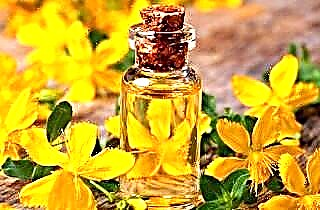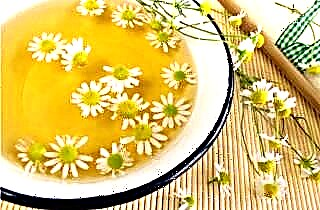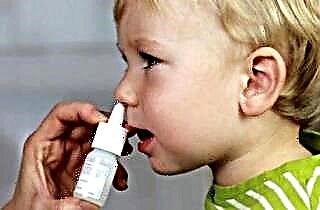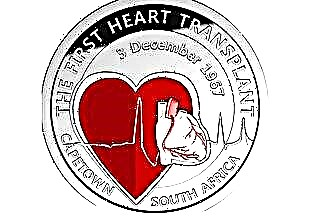The mucous membranes lining the inner nasal cavity are very thin and sensitive, and in some "lucky ones" they are even hypersensitive. Therefore, at the slightest irritation, an abundant secretion of mucus begins, and swelling develops quickly. Swollen mucous membranes make it difficult to breathe and make it difficult for oxygen to reach the lungs. To quickly restore it, you need to know how to relieve swelling of the nasal mucosa at home.
Causes of puffiness
 All the reasons that can provoke swelling of the nasal mucosa and a severe runny nose (and sometimes without it) can be conditionally divided into three large groups:
All the reasons that can provoke swelling of the nasal mucosa and a severe runny nose (and sometimes without it) can be conditionally divided into three large groups:
- Exposure to pathogenic microorganisms. These are any pathogenic viruses, bacteria or fungi that infect and irritate the nasal mucous membranes, causing severe swelling.
- Mucosal irritation. It can be affected by chemical or physical irritants: house dust, dirt particles, smog, tobacco smoke, strong and unpleasant odors, fumes from varnishes and paints, toxic chemicals.
- Exposure to allergens. The peculiarity of allergens is such that in most people they do not cause negative reactions of the body, and for allergy sufferers they serve as a mechanism for triggering allergy manifestations. Therefore, anything can be an allergen - this is a purely individual concept.
Naturally, if you do not eliminate the cause that caused the edema, then any measures taken will give only temporary relief. But, nevertheless, if the edema is severe, then you must try to remove it, and then begin the course of treatment.
Drug treatment
The easiest way to quickly relieve swelling of the nasal mucosa is to use proven medications that should be constantly in every medicine cabinet: antihistamines or vasoconstrictor nasal drops. If you do not know exactly what cause caused severe edema, then you can apply both at the same time.
Antihistamines suppress allergic reactions and are indispensable when edema is one of the manifestations of allergies. In some cases, you cannot know this for sure, so you can drink an antihistamine even when folk remedies have not helped.
 The simplest and most effective drugs that can be bought without a prescription at any pharmacy are: "Cetrin", "Claritin", "Tavegil", "Suprastin", "Diazolin". They begin to work actively within 15-30 minutes after taking, and some funds have a prolonged effect and can relieve swelling for 12-24 hours.
The simplest and most effective drugs that can be bought without a prescription at any pharmacy are: "Cetrin", "Claritin", "Tavegil", "Suprastin", "Diazolin". They begin to work actively within 15-30 minutes after taking, and some funds have a prolonged effect and can relieve swelling for 12-24 hours.
Vasoconstrictor nasal drops: "Naphthyzin", "Otrivin", "Dlya Nos", "Nazol", "Galazolin" are also able to quickly eliminate puffiness due to the fact that they dramatically reduce mucus secretion. But their frequent and uncontrolled use can lead to such unpleasant consequences as mucosal bleeding, erosion, and crusting. Therefore, they must be used as prescribed by a doctor or one-time, as an ambulance.
Folk remedies
The safest, although not so fast-acting means of dealing with swelling of the nasal mucosa are folk methods, which include: nasal drops, inhalation, rinsing. Drops work the fastest and most conveniently, but they are not always at hand. Although, if you know that you have a tendency to swelling of the mucous membranes, it is better to make sure that the drops can at least be prepared quickly.
- Onion or garlic juice with honey. Before using this remedy, make sure that the integrity of the nasal mucous membranes is not damaged, and that there is no allergy to honey. Mix freshly squeezed onion or garlic juice with the same amount of honey and instill 3-5 drops until the edema passes. It helps especially well with ARVI, as it has pronounced antibacterial properties.
 Potato juice. One of the best folk remedies for any edema, which, moreover, does not irritate the mucous membranes at all, so even small children can use it. It is enough to drip 3-5 drops into each nostril, and, if necessary, repeat after 20-30 minutes.
Potato juice. One of the best folk remedies for any edema, which, moreover, does not irritate the mucous membranes at all, so even small children can use it. It is enough to drip 3-5 drops into each nostril, and, if necessary, repeat after 20-30 minutes.- Oil tincture of St. John's wort. An excellent remedy for colds, runny nose and swelling of the nasal mucosa. Here it can just be prepared in advance, and then stored for up to six months in a cool, dark place. In a glass of pure sunflower or olive oil, throw 25-30 fresh or dried flowers of St. John's wort, tightly close the lid and put in a dark cabinet. Shake daily, strain and refrigerate after three weeks.
- Coniferous oils: cedar, fir, and thuja also perfectly remove a runny nose and relieve swelling of the mucous membrane. But you cannot use them in their pure form - a skin burn is possible. For 1 tsp. base oil (sea buckthorn, olive, peach) drip 5-6 drops of essential coniferous and with this solution you can drip your nose. Usually, just a few drops are enough to quickly relieve nasal congestion.
- Lily of the valley flowers. It is also a very effective and convenient tool that can always be at hand. In spring, collect lily of the valley flowers and dry them out of direct sunlight. When the moisture is completely gone, grind into powder or grind in a coffee grinder. In case of severe swelling of the mucous membrane, take a little powder and, closing one nostril, carefully inhale the powder with the other so that it remains in the nasal cavity, and does not fly into the lungs.
Nasal instillation is the fastest and most affordable way to remove swelling. But there are others, no less effective.
Washing solutions
Even if the swelling has already gone, you can rinse your nose as a preventive measure. Such folk remedies are good for washing:
 Sea salt solution: 1 tsp. in a glass of water. Salt should be finely ground or refined. If this is not the case, then after stirring it is necessary to wait until a natural precipitate forms or strain the solution. You can also use coarse table salt, but then drip 5-6 drops of iodine into the glass.
Sea salt solution: 1 tsp. in a glass of water. Salt should be finely ground or refined. If this is not the case, then after stirring it is necessary to wait until a natural precipitate forms or strain the solution. You can also use coarse table salt, but then drip 5-6 drops of iodine into the glass.- Lemon juice. It cannot be used undiluted - it can further increase mucosal irritation. It is wrung out, filtered and bred in half with water. Remember that the healing properties of lemon juice will quickly deplete when exposed to air. Therefore, it simply does not make sense to prepare such a solution in advance.
- Chamomile decoction. Perfectly relieves inflammation, irritation, swelling of the nasal mucosa. But it will take at least half an hour to prepare it. This is exactly how much dry chamomile flowers filled with boiling water should be infused in a thermos: 1 tbsp. for 200 ml. The solution must be well filtered before use.
You can use ready-made pharmaceutical preparations for rinsing the nose, specially designed for this: Dolphin, Aquamaris or saline solution.
Other folk ways
If the swelling of the mucous membrane is caused by a cold or SARS, then steam inhalations will help perfectly, which at the same time moisturize the mucous membranes, warm the nose and relieve inflammation. Mint, sage, eucalyptus, and calendula oils added to water are well suited for inhalation. You can breathe in the steam of a soda solution or add a tablet of validol to boiling water.
Effective, but not fast-acting, ways to deal with nasal puffiness are:
- boiled egg - the bridge of the nose is "rolled" with it from both sides until the egg remains warm;
- mustard powder - it is poured into warm socks overnight, after steaming the legs;
- salt bag - it retains heat for a long time and helps to remove "negative" energy;
- iodine mesh is an equally effective way of warming up and fighting edema, and it can be done on the nose or feet.
In principle, all these methods are good in their own way, and you can only choose the most effective one by experience.
The main thing to remember is that if the edema does not go away within 2-3 days, despite all the measures taken, or it continues to intensify, and severe difficulty in breathing occurs, then you should not experiment further and you need to consult a doctor. Severe edema can completely block the airway and be fatal.

 Potato juice. One of the best folk remedies for any edema, which, moreover, does not irritate the mucous membranes at all, so even small children can use it. It is enough to drip 3-5 drops into each nostril, and, if necessary, repeat after 20-30 minutes.
Potato juice. One of the best folk remedies for any edema, which, moreover, does not irritate the mucous membranes at all, so even small children can use it. It is enough to drip 3-5 drops into each nostril, and, if necessary, repeat after 20-30 minutes. Sea salt solution: 1 tsp. in a glass of water. Salt should be finely ground or refined. If this is not the case, then after stirring it is necessary to wait until a natural precipitate forms or strain the solution. You can also use coarse table salt, but then drip 5-6 drops of iodine into the glass.
Sea salt solution: 1 tsp. in a glass of water. Salt should be finely ground or refined. If this is not the case, then after stirring it is necessary to wait until a natural precipitate forms or strain the solution. You can also use coarse table salt, but then drip 5-6 drops of iodine into the glass.

